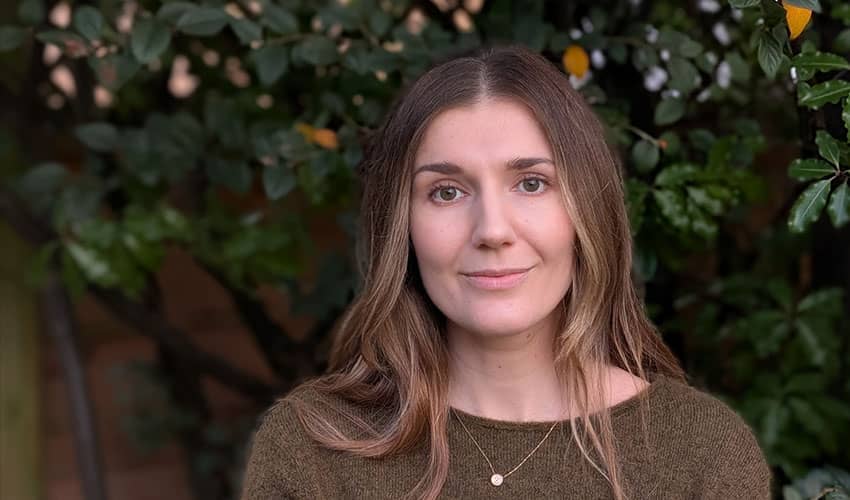Researcher wins top international criminology award for County Lines study

A UWE Bristol academic has been awarded a prestigious international criminology prize. Dr Jack Spicer, who is also a UWE Bristol alum, has received the 2021 Radzinowicz Prize, given annually by the Centre for Crime and Justice Studies and the editors of the British Journal of Criminology. It is awarded to the researcher judged to have made the greatest contribution to the development of criminology during the course of the year.
Criminology lecturer Dr Spicer was awarded the prize for his article ‘The policing of cuckooing in ‘County Lines’ drug dealing: An ethnographic study of an amplification spiral’. Describing Dr Spicer’s work, the judging panel praised it for its “innovative and thought-provoking” nature.
The article is based on ethnographic fieldwork undertaken by Dr Spicer exploring the high profile emergence of so-called ‘County Lines’ drug supply onto the criminal justice policy landscape over recent years. Focusing on the police responses to the drug market practice of ‘cuckooing’, which involves vulnerable people having their homes taken over by drug dealers, Dr Spicer sought to explain how these responses initially emerged, developed in interaction with the practice itself and became established as a core policing priority.
Developing a well-established theoretical framework, his analysis suggested an amplification spiral had taken place, with intensified police action justified based on how drug markets were dynamically adapting to their original responses. All of this was also influenced amid a wider backdrop of increased political, media and policy attention on the topic of County Lines.
Dr Spicer said: “I’m very pleased that people have enjoyed reading the article as much as I enjoyed writing it. The findings highlight several key factors that need to be considered if responses to County Lines are to be truly effective, so I hope that this work can go some way towards helping with that. It has been rewarding to be able to build on a long tradition of criminological scholarship highlighting some of the unintended consequences of drug policing and the complex nature of drug policy as it plays out on the streets. To have this contribution recognised by some of the leading figures in my discipline is a proud moment.”
Dr Ian Walmsley, Senior Lecturer in Criminology at UWE Bristol, said: “This is one of the most prestigious and major international awards in our discipline. Previous winners are usually senior figures at the pinnacle of their careers. For Jack to have won this at this stage in his career is a remarkable achievement. This should be viewed as a major success for the criminology programme, the faculty and the wider university.”
Dr Spicer previously studied at the University, graduating with a BA(Hons) in Criminology (2014) and later as a Doctor of Philosophy (2019). He also gained a Postgraduate Certificate of Academic Professional Practice (UWE Bristol Apprenticeship) in 2021.
Related news

04 March 2026
Community play to give Tewkesbury residents a voice
A community‑led play exploring Tewkesbury’s history with the River Severn and future environmental challenges comes to The Roses Theatre on 18 March.

16 February 2026
UWE Bristol researchers awarded grant to explore impact of asset recovery on offenders
UWE Bristol academics have been awarded funding to explore of the impact of asset recovery on deterring offender behaviour and disrupting crime networks.

10 February 2026
Work by UWE Bristol lecturer features in Government’s National Cancer Plan
Work by a UWE Bristol academic has been included in the Government’s National Cancer Plan.

23 January 2026
On-demand minibus services beneficial in rural areas but face financial challenges, trials suggest
Trials of ‘demand responsive transport’ minibus services boosted connectivity for people in rural and suburban areas, according to a new report produced by UWE Bristol researchers.

18 December 2025
UWE Bristol professor appointed National Institute for Health and Care Excellence CEO
Jonathan Benger CBE, Professor of Emergency Care at UWE Bristol, has been appointed as the new chief executive officer of the National Institute for Health and Care Excellence (NICE).

17 December 2025
Findings revealed from first UK study into experiences of mothers who are survivors of rape pregnancy
UWE Bristol academics have revealed the findings of the first UK-based study of the experiences of mothers who are survivors of rape pregnancy.

11 December 2025
Social media influencer work is far more demanding than it looks, research finds
A study exploring the mental health impacts of social media influencer work has revealed that life online is far more demanding than it appears.

25 November 2025
UWE Bristol experts join film Q&A exploring music and melodrama
Academics will take part in the Cary Comes Home Festival, with a post-screening Q&A exploring music, melodrama and emotional storytelling in classic cinema.

17 November 2025
Urgent reform needed to support ambulance-delivered end of life care, study finds
More than three quarters (78 per cent) of paramedics sometimes fear doing the wrong thing when caring for people in the last year of life, new research has found.

13 November 2025
Bristol’s screen industry experiences “boom-and-bust cycle” after post-pandemic recovery, new research from UWE Bristol finds
New research from UWE Bristol provides detailed insight into Bristol's screen sector.

13 November 2025
New AI research to revolutionise animal welfare
A UWE Bristol research project will combine behavioural science and AI to create technology that understands not only what animals do, but how they feel.

10 November 2025
Lessons from Low Traffic Neighbourhoods will drive better public engagement, study finds
Lessons from Low Traffic Neighbourhoods have informed a new toolkit to improve engagement with the public on challenging local street issues.






